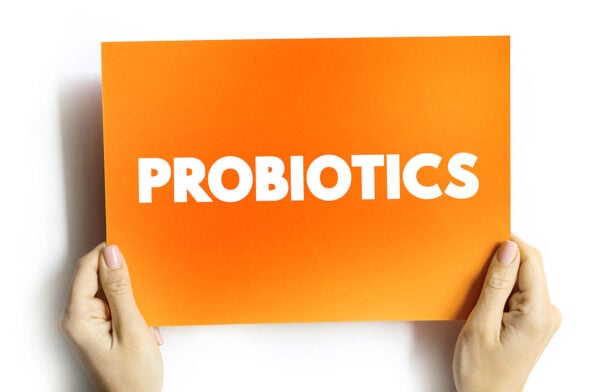Restore Gut Health With Probiotics, Prebiotics & Fermented Food
Take care of your gut to look after nearly every aspect of our health

It might seem strange that gut health can impact how we feel emotionally, our susceptibility to urinary tract infections, migraines, acne, autoimmune conditions and even our predisposition to serious disease. But, the bottom line is, it’s key in all these conditions and many, many more.
Gut bacteria
We all have trillions of bacteria living inside us, most of which is in our gut, and the majority are harmless. What’s more, some are helpful. But, there are a small number that are not healthy and can cause or contribute to disease.
Gut microbiome
Our gastrointestinal tract is colonized by many microorganisms, not just bacteria, but also archaea, viruses, fungi and protozoa. These microorganisms make up what we call the gut microbiota, microbiome or intestinal microflora, and can have a profound effect on our health.
Everyone has their own unique microbiome, impacted over time by illness, stress and antibiotic use.
Benefits of healthy bacteria
Making sure your gut bacteria is healthy and in balance is a vital step in optimising our health. It can’t be overstated.
Probiotics work by changing the balance of your gut bacteria. The goal is that the good bacteria crowd out the bad in your intestine. In turn, this stops the bad bacteria from multiplying and causing infection and inflammation issues.
An example of how this works, is how a healthy, well-balanced gut, will keep yeast at lower levels to help prevent yeast overgrowth.
Some of the benefits you might experience can include:
- weight loss
- improved digestion
- enhanced immunity
- skin improvements
- reduced risk of some diseases
How to improve gut bacteria
Colonising your gut with good microorganisms or healthy bacteria can be done either with supplements or diet, such as:
- Probiotic supplements, which are friendly bacteria that come in a range of strains and potencies.
- Fermented foods
- Prebiotics
Probiotics
I often use probiotics in my practice. The main reason for this is that I know that the best suited strain can be taken consistently at a specified dose. However, fermented foods and prebiotics are really helpful and great to take also.
Strains of probiotics
Not surprisingly, there are many strains of probiotics. Research has found that certain strains help more specifically with certain conditions, such as weight loss or depression.
Spore-forming, soil-based probiotics are a notable type of probiotic that are gaining momentum, and something I often use.
Here are some common probiotic strains:
- Bacillus coagulans
- Bacillus subtilis
- Bifidobacterium bifidum
- Bacillus clausii
- Lactobacillus acidophilus
- Lactobacillus fermentum
- Lactobacillus gasseri
- Lactobacillus plantarum
- Lactobacillus reuteri
- Lactobacillus rhamnosus
- Lactobacillus sporogenes
- Saccharomyces boulardii
Which probiotics should you take?
Strains can be matched to individual health conditions, such as the following:
-
Bowel infection
For example if someone has a bowel infection after the use of antibiotics, such as Clostridium difficile (C. diff), Saccharomyces boulardii is very well suited to target this. It has other specific uses too, and is something I frequently use in addressing Candida overgrowth and diarrhoea.
-
Weight loss
There are several areas I look at to help with weight loss, but gut bacteria is one of them. There are 5-6 strains that can be looked at to help with weight loss. One notable type is the two strains of Lactobacillus gasseri, BNR17 and SBT2055. This has been found to be effective in reducing weight and increasing fat loss.
– A 2010 study found that Lactobacillus gasseri SBT2055 helped reduce bodyweight, abdominal fat, subcutaneous fat, BMI, and hip and waist circumference after 12 weeks.
– Another study in 2018 found that high dose supplementation with Lactobacillus gasseri BNR17 significantly decreased visceral fat tissue. Both high and low dose BNR17 supplementation significantly reduced waist circumference after 12 weeks.
-
Immune function
Again there are many ways naturopathically to help boost immunity. Probitics are an important part of this, with Lactobacillus acidophilus and Bifidobacterium lactis being two of the best strains for this.
Fermented foods
A serve of fermented foods such as sauerkraut and Kieffer can actually have more probiotics in them than a capsule. However, where targeted strains are needed, I opt for supplements. Having said this, fermented foods are very beneficial and shall be the subject of another newsletter.
Prebiotics
These help to set up the environment for probiotics to flourish. Including prebiotics in your diet is an excellent way to help restore a healthy microbiome. I recommend trying to include prebiotic foods such as chicory root, dandelion green, Jerusalem artichoke, garlic, onions, leeks, asparagus and bananas in your diet.
Stool tests
One of the great ways to determine the condition of your gut flora and gut health is through a GI360 test. These are available through my practice and I can advise you on the results and recommended steps to rebalance and optimise gut flora and gut health.


